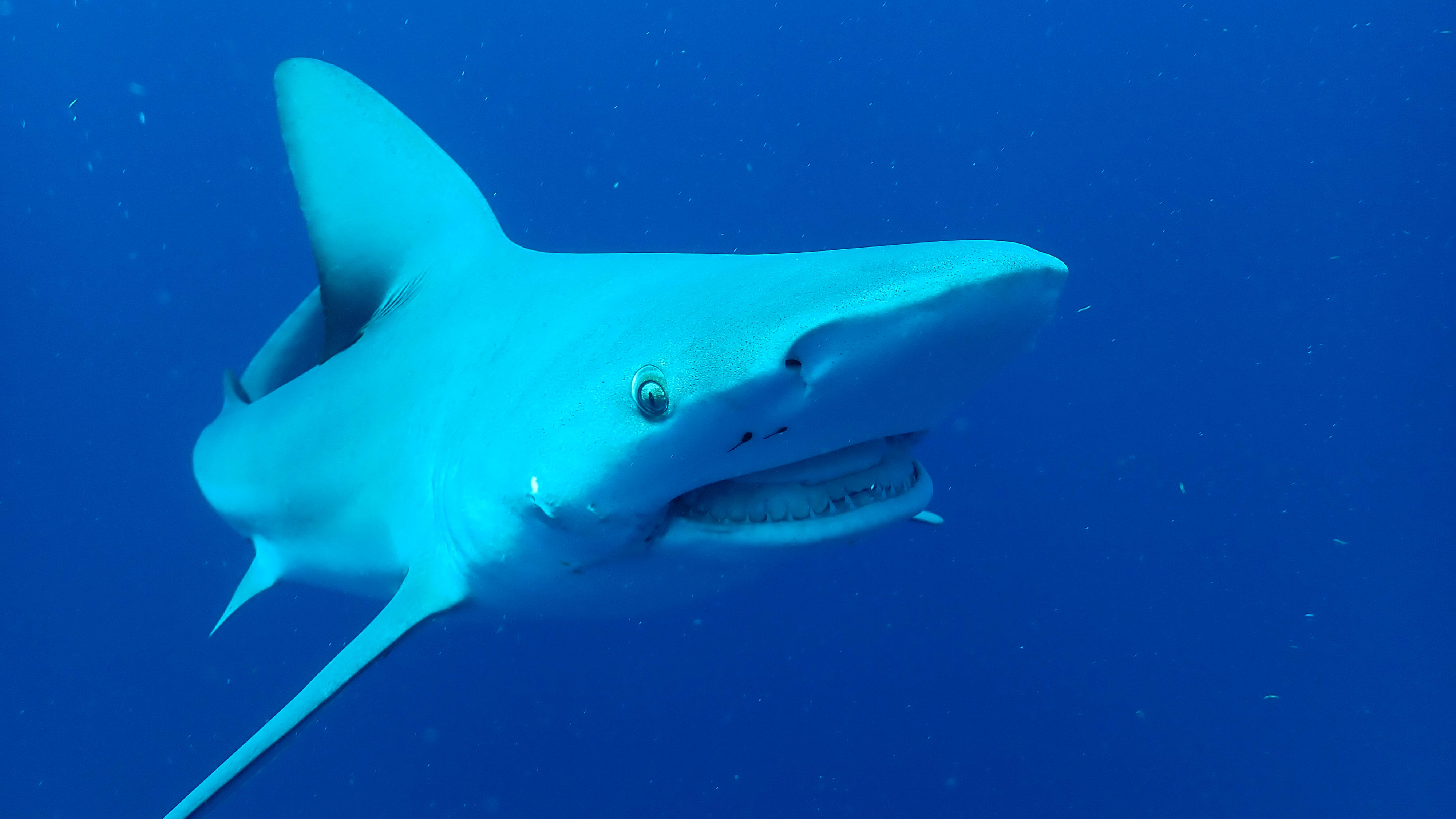Shark enthusiast hopes her conservation efforts make waves


A free daily email with the biggest news stories of the day – and the best features from TheWeek.com
You are now subscribed
Your newsletter sign-up was successful
She's always been fascinated by sharks, and now, Candace Fields is doing everything she can to save them.
Fields is a PhD student at Florida International University, studying the population dynamics and geographic population structure of large predators, with a particular focus on oceanic whitetip sharks. Her goal is to use genetics and tracking to learn more about this critically endangered species and assist in its recovery plan.
"Sharks have a negative reputation, and I've always been intrigued by this and wanted to get closer to them to learn more about their behavior," Fields told The Week. "I want to change perspectives."
The Week
Escape your echo chamber. Get the facts behind the news, plus analysis from multiple perspectives.

Sign up for The Week's Free Newsletters
From our morning news briefing to a weekly Good News Newsletter, get the best of The Week delivered directly to your inbox.
From our morning news briefing to a weekly Good News Newsletter, get the best of The Week delivered directly to your inbox.
Fields grew up in the Bahamas, which is a shark sanctuary, and learned early on that it's "important to understand the diverse range of sharks out there, that all play a critical role in the ecosystem." There are many misconceptions about sharks, like they are "all brainless swimming mouths," Fields said. "That is not the case. They have a preference for specific foods and they have preferences for the time of day to go hunting. They can very easily swim by a meal and not take it."
In addition to her studies and research, Fields has learned more about sharks through her participation in Minorities in Shark Sciences (MISS), a nonprofit founded in 2020 by four Black women who did not feel welcome in the marine and shark sciences. Members aim to be role models for the next generation while promoting diversity and inclusion in their field. On top of it all, Fields is also a contributor to National Geographic's SharkFest, and will be featured in the upcoming program "Bull Shark vs. Hammerhead."
"I feel quite proud to be a Bahamian on screen talking about sharks in the Bahamas and how important the Bahamas is for shark conservation," Fields said.
Her mission on and off screen is to get people to better understand how globally, sharks have seen serious population declines due to overfishing, habitat loss, and climate change. She believes that the tides are turning, and "generally speaking, there's now much more public support for conservation and trying to help populations recover and maintain stability and avoid extinction."
A free daily email with the biggest news stories of the day – and the best features from TheWeek.com
Catherine Garcia has worked as a senior writer at The Week since 2014. Her writing and reporting have appeared in Entertainment Weekly, The New York Times, Wirecutter, NBC News and "The Book of Jezebel," among others. She's a graduate of the University of Redlands and the Columbia University Graduate School of Journalism.
-
 The environmental cost of GLP-1s
The environmental cost of GLP-1sThe explainer Producing the drugs is a dirty process
-
 Greenland’s capital becomes ground zero for the country’s diplomatic straits
Greenland’s capital becomes ground zero for the country’s diplomatic straitsIN THE SPOTLIGHT A flurry of new consular activity in Nuuk shows how important Greenland has become to Europeans’ anxiety about American imperialism
-
 ‘This is something that happens all too often’
‘This is something that happens all too often’Instant Opinion Opinion, comment and editorials of the day
-
 Blue Origin launches Mars probes in NASA debut
Blue Origin launches Mars probes in NASA debutSpeed Read The New Glenn rocket is carrying small twin spacecraft toward Mars as part of NASA’s Escapade mission
-
 Dinosaurs were thriving before asteroid, study finds
Dinosaurs were thriving before asteroid, study findsSpeed Read The dinosaurs would not have gone extinct if not for the asteroid
-
 SpaceX breaks Starship losing streak in 10th test
SpaceX breaks Starship losing streak in 10th testspeed read The Starship rocket's test flight was largely successful, deploying eight dummy satellites during its hour in space
-
 Rabbits with 'horns' sighted across Colorado
Rabbits with 'horns' sighted across Coloradospeed read These creatures are infected with the 'mostly harmless' Shope papilloma virus
-
 Lithium shows promise in Alzheimer's study
Lithium shows promise in Alzheimer's studySpeed Read Potential new treatments could use small amounts of the common metal
-
 Scientists discover cause of massive sea star die-off
Scientists discover cause of massive sea star die-offSpeed Read A bacteria related to cholera has been found responsible for the deaths of more than 5 billion sea stars
-
 'Thriving' ecosystem found 30,000 feet undersea
'Thriving' ecosystem found 30,000 feet underseaSpeed Read Researchers discovered communities of creatures living in frigid, pitch-black waters under high pressure
-
 New York plans first nuclear plant in 36 years
New York plans first nuclear plant in 36 yearsSpeed Read The plant, to be constructed somewhere in upstate New York, will produce enough energy to power a million homes
